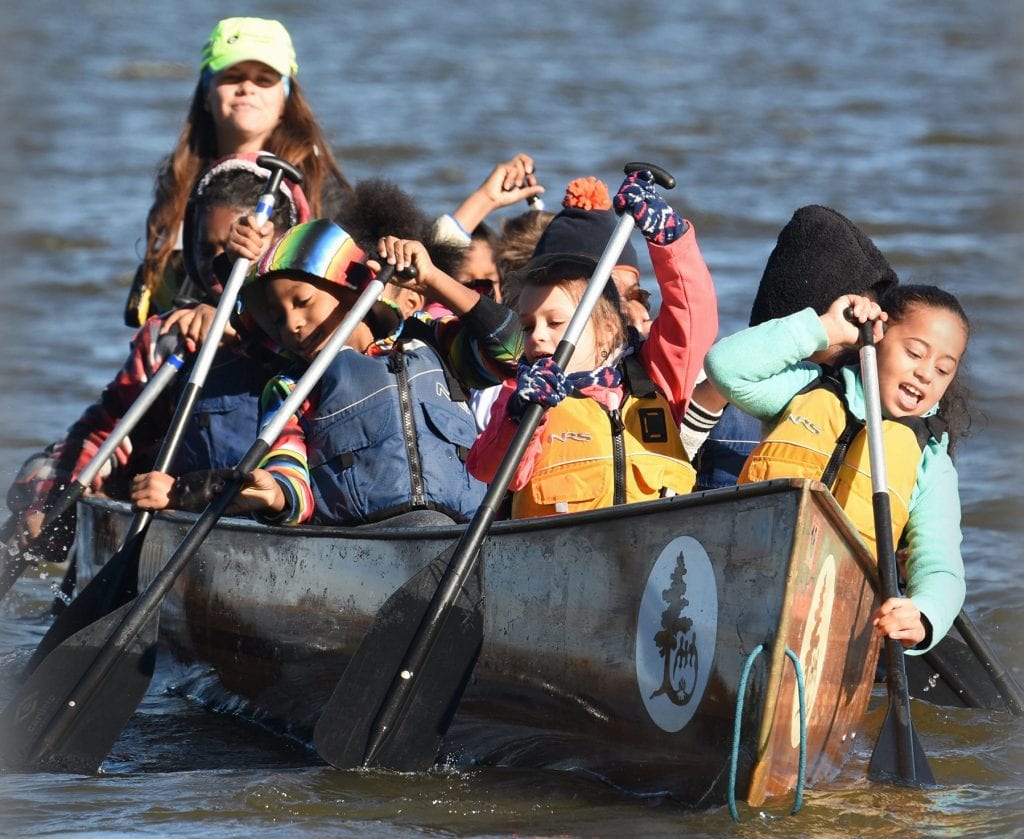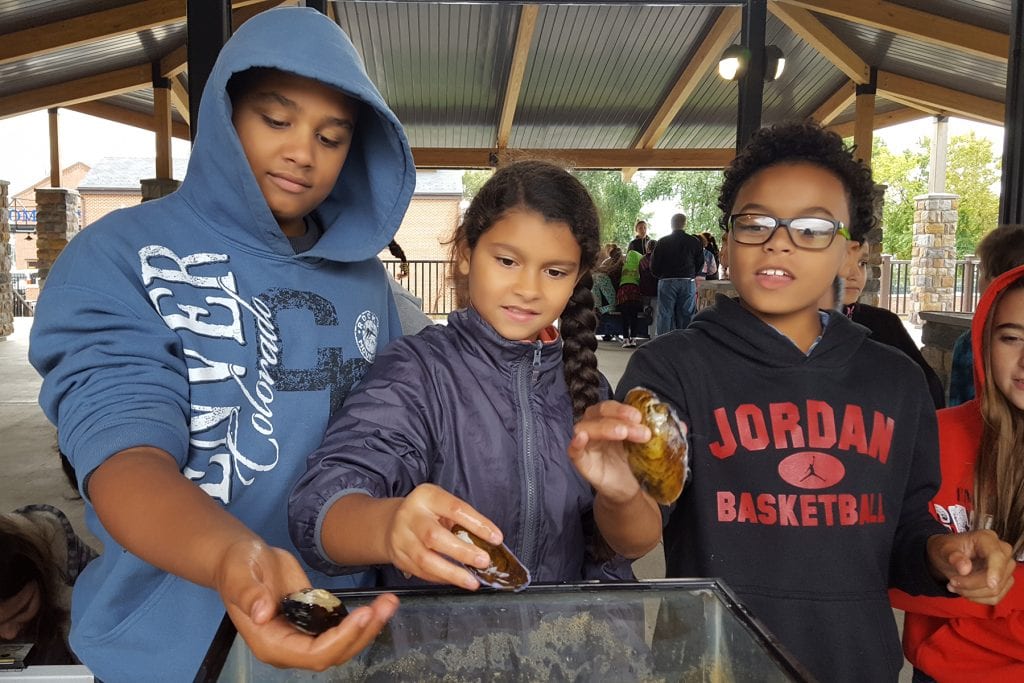Since 2012, Wilderness Inquiry has been working with the National Parks Conservation Association (NPCA) to bring Canoemobile to Hopewell, Virginia. This year, the groups also partnered to bring Canoemobile to Columbia, Pennsylvania. Both events were successes, with more than 600 children going out on the water.
Pam Goddard, the Chesapeake and Virginia Program Director for the NPCA, was instrumental in working with Canoemobile to get students out in canoes in these places. A big part of her job is to expose people to the national parks. We checked in with her this week to see how Canoemobile helps her achieve NPCA’s goals.
How did you hear about Canoemobile?
We had a partner in D.C. back in 2011 and 2012 who told us about Canoemobile. My field representative and I always scope out a potential partner before we decide we want to work with them. So we volunteered at one of the Canoemobile events on the Anacostia River. We were so impressed with the whole crew, the mission, how great the leaders were with the kids, and how they highlighted a national park. We were sold and became a partner. We’ve done yearly events since 2012, sometimes two or three events a year.

Why did you bring Canoemobile to Hopewell, Virginia and Columbia, Pennsylvania?
When we have field events we tie them to our campaign goals. So we had a campaign goal in Virginia to build affinity for Petersburg National Battlefield because we wanted to pass a bill in Congress to protect more battlefield. But to get people to advocate for a place they need to know it exists and get out there and enjoy it. We decided with the National Park Service and the Friends of the Lower Appomattox River to bring Canoemobile down to Virginia to bring a new set of young people into the national park. We also wanted the children to become empowered. Many children don’t know how to swim, they’ve never been on a boat, and they don’t get out in nature very often, so we want to get kids out.
We went to Pennsylvania because there is a relatively new park. It’s a water trail called the Captain John Smith Chesapeake National Historic Trail. And because it’s a water trail, it’s not land-based, a lot of people don’t know about it. So we want people to know about it and get out there and enjoy it see what a beautiful place it is. The Susquehanna is fabulous. We want people to enjoy the parks, build affinity for the parks, and become regular park attendees and park advocates.
And what kind of effects have you seen so far from Canoemobile?
People look forward to Canoemobile coming every year. They get very excited about it. The kids see it as a reward in class. Teachers have actually told me that they tell their students, “If you want to go on Canoemobile, you have to do this and this.” And so it builds a lot of excitement for the kids to get outside and to experience nature, to learn how to gain the confidence to paddle in a boat, and to learn about the history of their area in the national parks. We’ve also been able in both Virginia and Pennsylvania to have the state fish and game offices come and talk about some of the critters that live there. Down in Virginia, the students can touch a corn snake. In Pennsylvania, they learn about the importance of mollusks cleaning the river and they get to touch an eel. It’s pretty cool.

How does Canoemobile work with the mission of the National Parks Conservation Association?
I think both our organizations have the same mission, which is to get people out to enjoy the outdoors and to empower them to show them it’s attainable. You don’t have to have a lot of special equipment. You don’t have to travel a long way. You don’t have to stay somewhere else. You have beautiful natural areas in your backyard and you can acquire the skills and the safety training that you need very easily to get out and enjoy your national parks and your national public lands.
What work do you hope to do with Canoemobile in the future?
We’ve actually written into one of our grants to have Canoemobile come to Virginia for two more years. We’re going to try to do that in Pennsylvania too. And then finally, because of the work we’ve been doing here in the Mid-Atlantic Region, a lot of our other regional offices really want to do this. They want Canoemobile to come to Utah, and New York, and to Tennessee. So we’re working with Greg Lais [Wilderness Inquiry’s Executive Director] to come up with a cooperative agreement to do some joint fundraising and make that a possibility. We want to continue this partnership throughout the country.


Leave a Reply